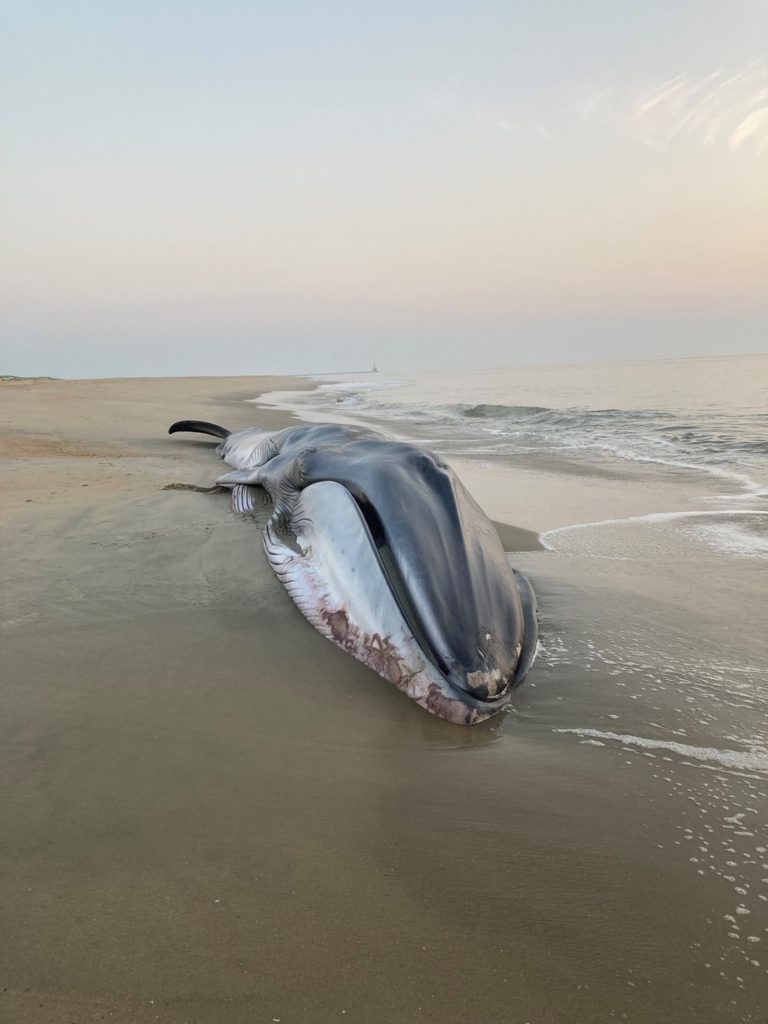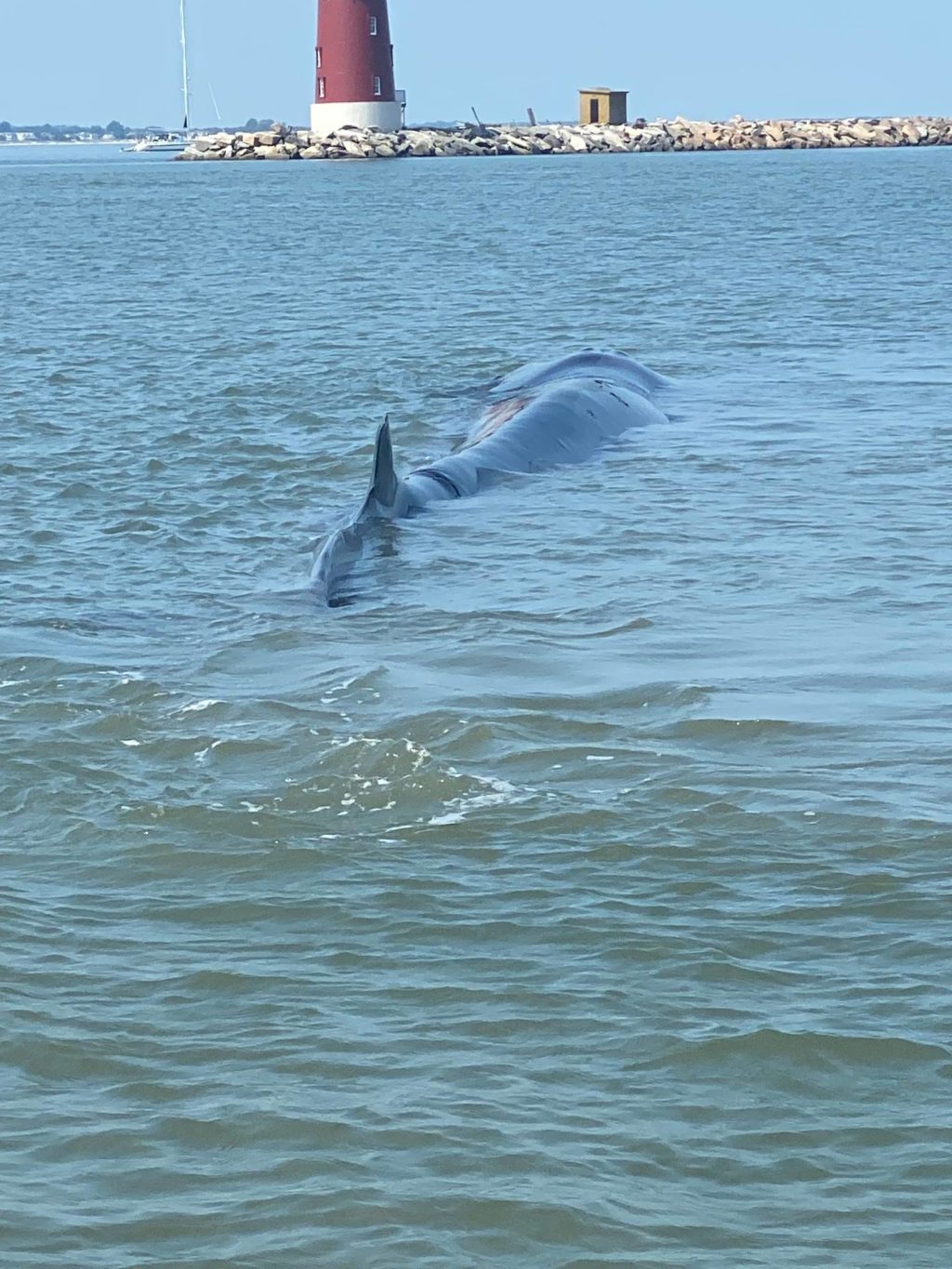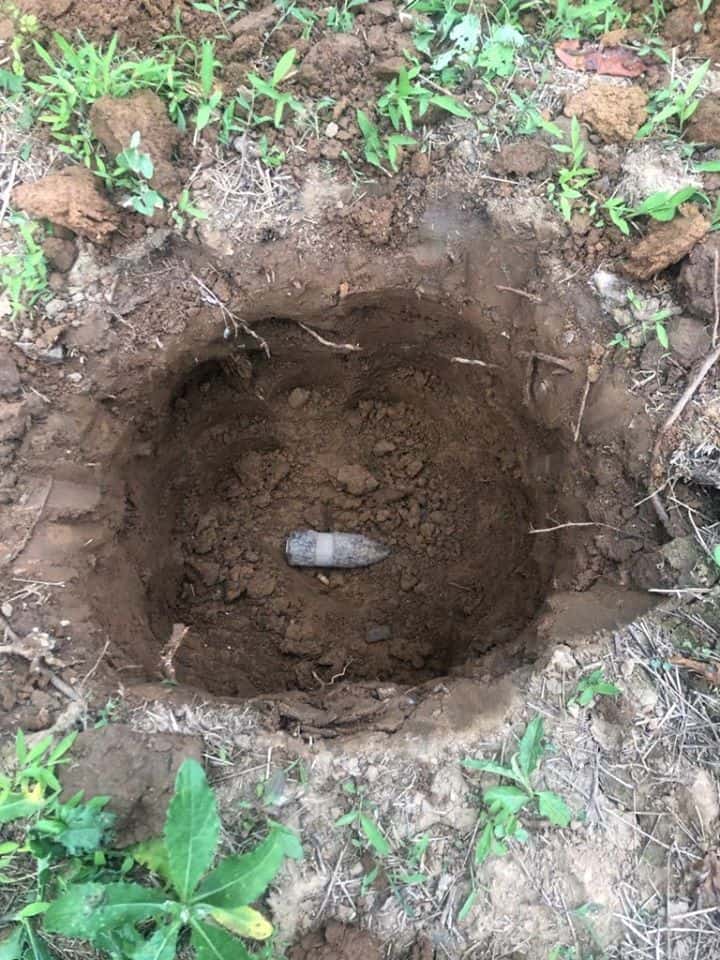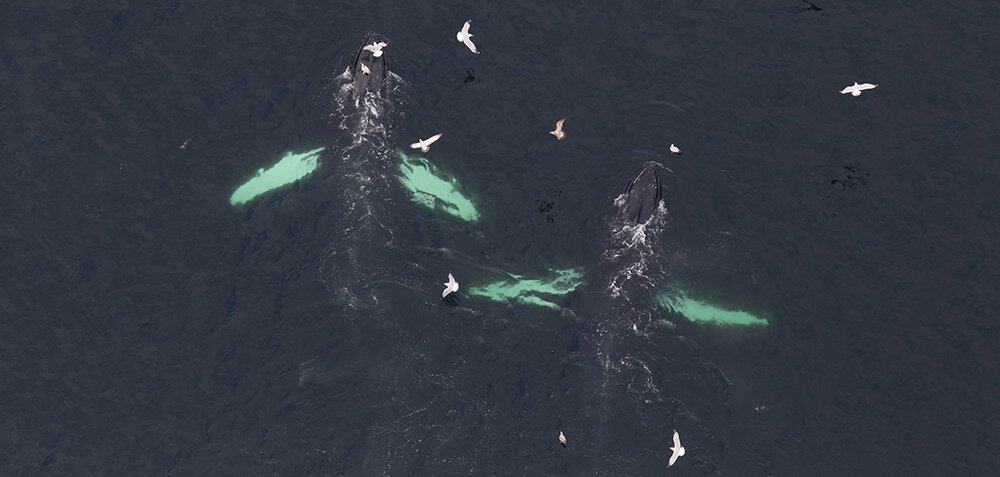A 57-foot-long fin whale that became stranded in shallow water at Cape Henlopen State Park in Lewes, Del. has died, and a team of scientists was able to determine what caused the whale to come into shore.
The fin whale is the second-largest whale species on earth, behind only the blue whale. This male fin whale whale was initially stranded on a sandbar Thursday morning on the Delaware Bay side of the point at Cape Henlopen. Delaware Natural Resources Police and the local Marine Education, Research and Rehabilitation (MERR) Instititute responded to look into any potential injuries or entanglement of the whale.

Later Thursday, after high tide had come in, the MERR Institute said in a Facebook post, “the fin whale had moved off the sandbar and closer to shore rather than into deeper water, which is not a good sign.” MERR Institute noted the whale seemed to be struggling and in the process of beaching itself. On Friday afternoon, the Delaware Department of Natural Resources and Environmental Control (DNREC) reported that the whale had died.
Photos showed it washed up on the beach. MERR Institute and a team of partners then took measurements and samples from the whale for a necropsy. DNREC and partner agencies used heavy equipment to dig a deep trench and bury the 57-foot whale deep down on the beach, leaving it to decompose naturally.
Later, NOAA Fisheries announced the results of the necropsy performed by the Virginia Aquarium and MERR Institute. “The whale was suffering from a significant parasitic infection. It was thin and had empty stomachs, indicating that it had been ill and had not been feeding,” NOAA shared.
Large whales usually come close to shore because of an underlying reason like injury or disease.
The MERR Institute says, “Sadly, in situations like this, there is often very little we can do to help save the whale; returning the whale to deeper water—which is a challenge under the best of circumstances for animals of this size and weight—would only prolong its suffering and it would likely strand again.
Fin whales are listed as endangered throughout their range and are usually found in deep water. MERR asks anyone who witnesses a whale stranding in Delaware to MERR, at 302-228-5029.
–Meg Walburn Viviano




